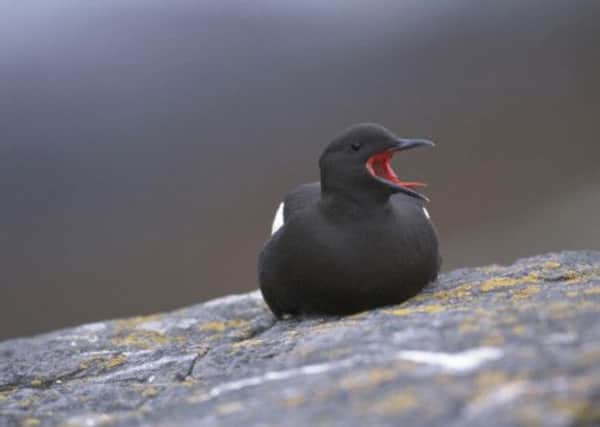Plans for Scots marine protection areas unveiled


They claimed the historic draft management proposals that will form the Government’s new National Marine Plan offered fresh hope to the nation’s “most precious resource.”
But one wildlife charity, RSPB Scotland, warned the proposals would do nothing to protect the majority of Scotland’s threatened seabird species.
Advertisement
Hide AdAdvertisement
Hide AdThe draft proposals for the new marine action plan are going out to public consultation. For the first time, it will provide a single framework to manage all activity in Scottish waters, providing “clarity” to developers and decision makers on Scotland’s priorities for the sustainable use of seas around Scotland’s coast.
The proposals include the establishment of a network of new Nature Conservation Marine Protected Areas (MPAs) which, if designated, will create a strategic patchwork of protected areas in both inshore and offshore waters designed to give sealife - such as corals, sponges and fish - a chance to return to better health.
The document also includes proposals for individual marine plans for various sectors of the North Sea and West coast waters which will guide the future development of the offshore renewable energy industry in Scotland.
Launching the 16 week consultation in Shetland, Richard Lochhead, the Scottish Environment Secretary, said: “Scotland’s seas are fundamental to our way of life. They are a vast and vital natural resource which provide energy, food and recreation.
“We must protect and enhance our marine environment so that it remains a prized asset for future generations. This government has worked hard to introduce marine planning and the National Marine Plan will help achieve the balance needed for sustainable growth.”
The blueprint was welcomed by conservation campaigners who claimed the proposals had the potential to help reverse hundreds of years of environmental decline in Scotland’s seas.
Calum Duncan, convenor of Scottish Environment LINK’s marine taskforce, the Save Scottish Seas campaign, said: “Today’s proposals are a genuinely historic opportunity to recover Scotland’s seas – perhaps our most precious resource. It is an uncomfortable fact, but for centuries now many marine species and habitats have been in decline.
“These MPAs must not therefore be a mere safety net - they are urgently needed to actually improve the health of our seas.
Advertisement
Hide AdAdvertisement
Hide AdSam Gardner, head of policy at WWF Scotland said: “These plans are as much about managing ourselves as they are about managing our environment. Our seas are getting busier and busier as we see the emergence of the exciting and hugely important marine renewable energy sector.
“With a proposed blueprint for managing newer industries alongside our vital, traditional ones such as fishing, this is a great opportunity to guide development in a way that delivers the win-wins we can all enjoy from the sustainable management of Scotland’s seas.”
Jonathan Hughes, director of conservation at the Scottish Wildlife Trust, said the plan would see “proper marine protection edging closer to reality.” And he continued: “Marine Protected Areas are a globally tried and tested means of safeguarding precious marine life and all the people of Scotland stand to benefit from these measures, particularly those whose livelihoods depend on healthy oceans.”
RSPB Scotland, however, claimed the plans for Marine Protected Areas would do nothing to protect the majority of Scotland’s seabirds. Lloyd Austin, head of conservation policy at RSPB Scotland, said: “We welcome this opportunity to put our full support behind MPAs, they are vital for the protection of Scotland’s amazing marine life. However, the Scottish Government has missed a great opportunity to do something positive for seabirds. Many species are suffering worrying declines in numbers so whilst puffins, razorbills, kittiwakes etc may be protected on land, without MPAs to protect their foraging areas, their colonies are simply a safe place to starve.”
Bertie Armstrong, chief executive of the Scottish Fishermen’s Federation also stressed: “The consultations must be the first part of the development of a sensible balance between marine conservation, energy production and the essential requirement to secure and protect a viable fishing industry that will ensure the future of our coastal communities and the continuing provision of a required and sustainable source of food.”